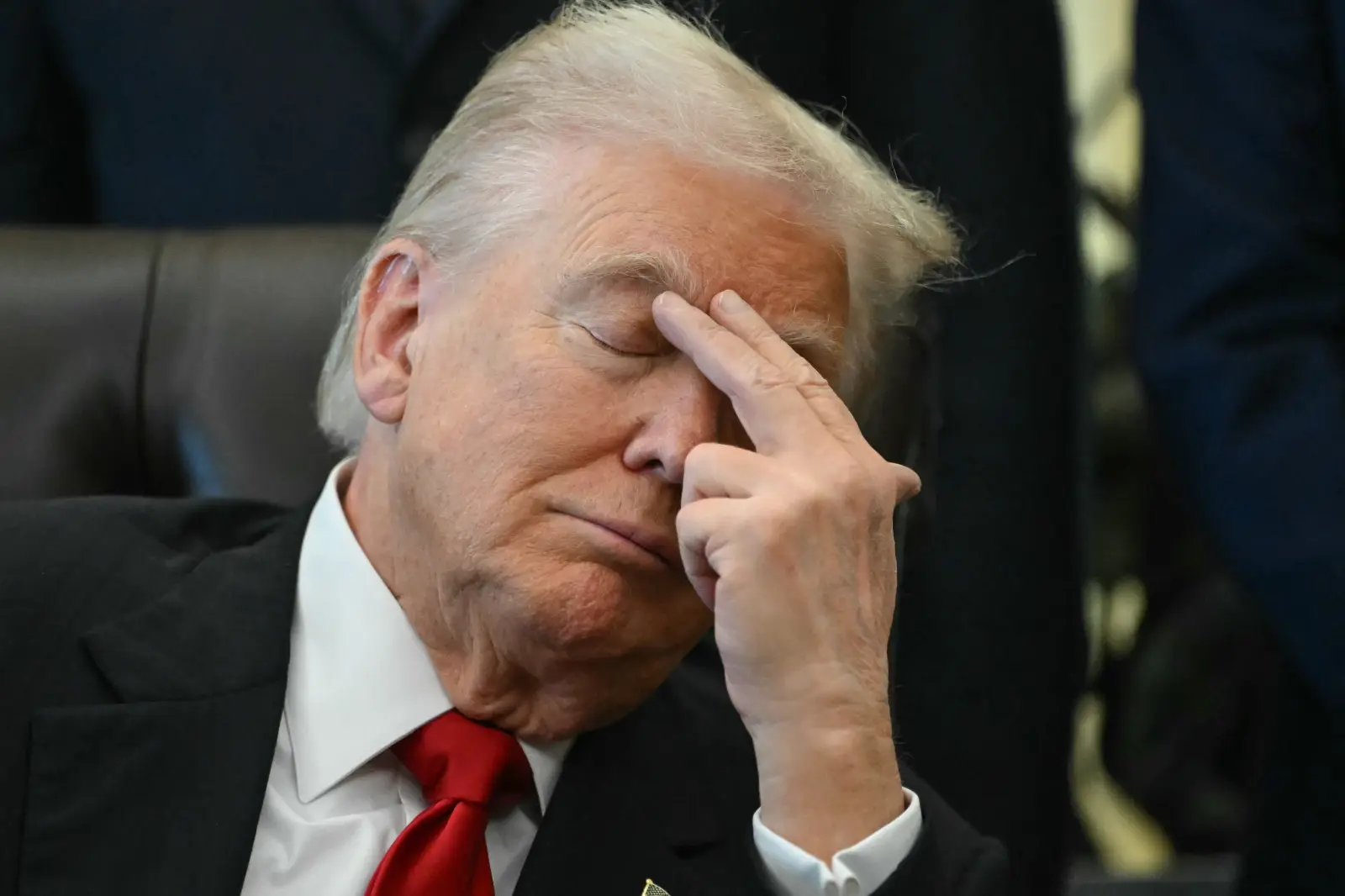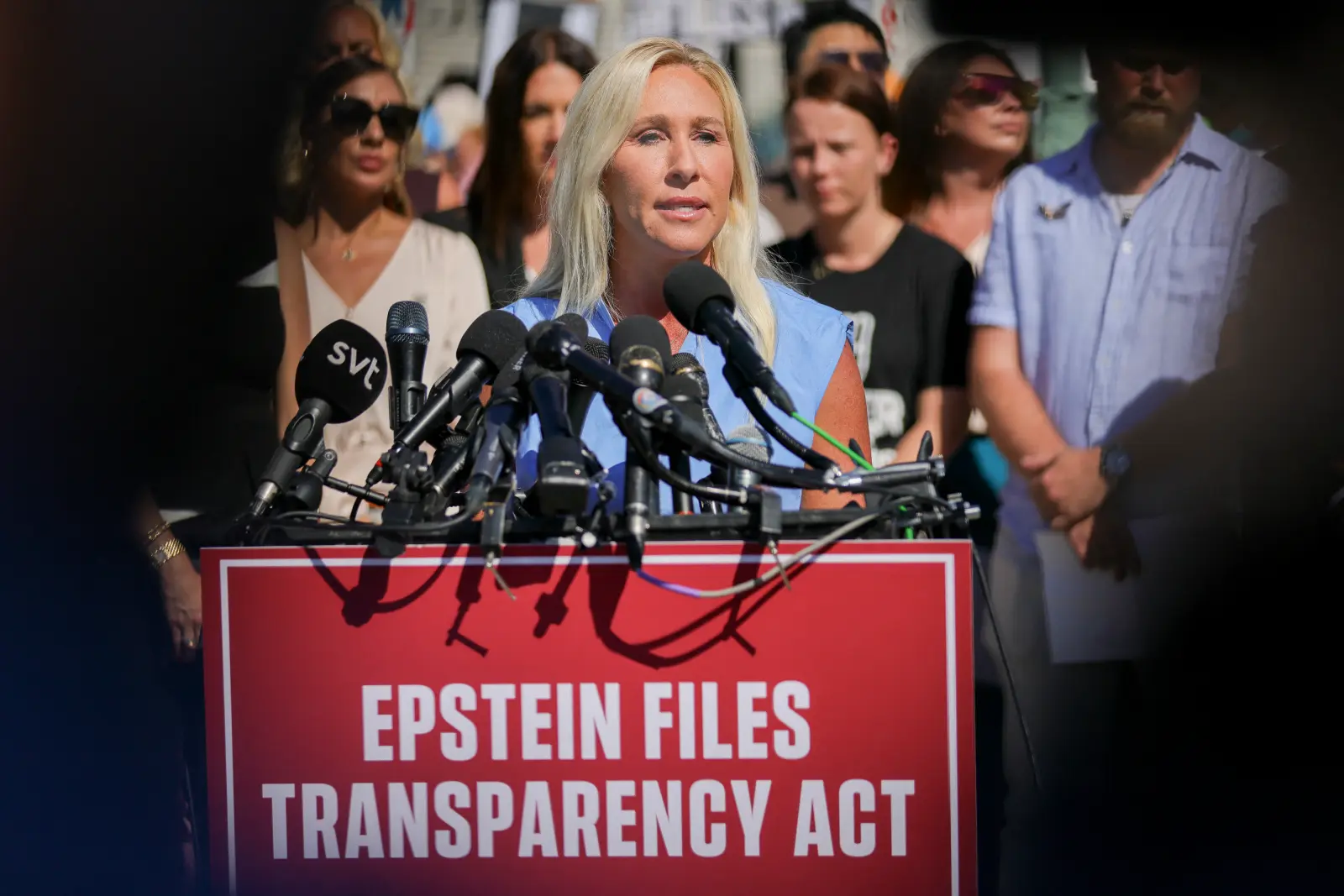Ten days that shook Trump's second term
In the ten days since the 2025 elections, Donald Trump has faced a series of political blows that left his allies rattled, his base divided, and his once-durable administration suddenly strained. A humbling Election Day rout of GOP candidates up and down the ballots quickly gave way to finger-pointing, infighting, and the return of a scandal Trump had long tried to bury.
The warning signs came immediately. On November 5, Democrats romped, from New York City to Georgia. In Virginia and New Jersey, Abigail Spanberger and Mikie Sherrill flipped governorships by margins that suggested their wins were never in doubt. In New York, far-left City Councilman Zohran Mamdani defeated former Democrat-turned-independent Andrew Cuomo by 12 points. In less-covered races, Pennsylvania’s judicial elections, Georgia's utility board and ballot measures in Maine and California all went blue.
“We got our asses handed to us,” Vivek Ramaswamy, a close Trump ally running for governor in Ohio, wrote on X, acknowledging the drubbing.
The Rewrites BeginTrump moved quickly to deflect blame. “TRUMP WASN’T ON THE BALLOT,” he wrote on Truth Social, pointing to the month-long government shutdown, poor Republican candidates and even worse campaign messaging. In a Fox News interview the next morning, he insisted, “It’s no good if we do a great job and you don’t talk about it,” and shifted responsibility to individual candidates, especially in states where he had not joined them on the trail.
But voters were responding to broader concerns about the state of the country and, even more so, the economy — an economy that is now firmly attached to the president despite his efforts to tie it to his predecessor. Exit polls in Virginia and New Jersey showed that nearly two thirds felt “angry” or “dissatisfied” with the country’s direction. Republicans even lost the Virginia attorney general race to a Democrat who had fantasized about killing his political rival and their children. Pundits across the political spectrum called the results a rejection of the status quo, especially on pocketbook issues like affordability and inflation.

“Trump is now in a position where he’s defending high prices while trying to convince people things are getting better,” said Lawrence J. White, a professor of economics at NYU Stern. “That’s a hard place to be politically.”
Latino Support Starts to SlipThe shift was most evident in areas where Trump had once overperformed. In Passaic County, New Jersey, where 42 percent of residents are Hispanic, Democrats converted a three-point Republican lead from 2024 into a fifteen-point win. In Manassas Park, Virginia, where Latinos make up 46 percent of the population, Spanberger won by forty-two points, doubling the Democratic margin from 2024.
Loading twitter content...
“They’re starting to feel what the rest of the country is feeling,” Mike Madrid, a former Republican strategist who studies Latino voting behavior, told Newsweek. “There was always this idea that Trump had unique appeal to Latino working-class voters. That was true to a point. But he’s not delivering. And once that stops, that support begins to crack.”
Trump’s “Biden Moment”The backlash extended beyond Latino areas. In the week after Election Day, Trump’s typically steady approval ratings fell sharply. A University of Michigan survey found that consumer sentiment had dropped to near-recession levels, and an Economist/YouGov poll showed that 62 percent of independents believed the economy was “getting worse,” the highest share since mid-2022.
Inside the White House, anxiety grew. Trump aides had spent months trying to pin economic troubles on Biden-era policies, but that argument was falling flat. While the president was chalking up some wins on foreign policy, from the Gaza ceasefire to promises of investment, he had forgone kitchen-table issues that, polls routinely show, determine an administration's popularity. In a Fox News interview, Vice President JD Vance again blamed the Biden administration and illegal immigration for the country’s financial strain.

Vance said the United States had “inherited this terrible inflation crisis from the Biden administration” and claimed the Trump administration’s economic policies needed more time to take effect. He compared tax cuts and worldwide tariffs to trees that would eventually bear fruit.
MAGA Starts Asking QuestionsBy November 6, frustration inside Trump’s base was spilling into public view. Representative Marjorie Taylor Greene called the midterm results “a major wake-up call,” criticizing Republicans for failing to address affordability and the pressures of the shutdown.
Trump pushed back. “I don’t know what happened to Marjorie,” he told reporters. “She’s a nice woman, but I don’t know what happened. She’s lost her way, I think.”
Senator Ted Cruz warned that Republicans risked complacency. “There are Republicans and people who are just commonsense in the middle who, I fear, are feeling happy or potentially complacent,” he said on Fox.
Loading twitter content...
H-1B Comments Spark Outrage on the RightTrump’s attempt to reset the narrative with a Fox News primetime sitdown on November 10 quickly backfired. During the interview with Laura Ingraham, he was pressed on whether the U.S. should continue issuing H-1B visas for foreign tech workers—a long-standing point of contention within his base.
Trump surprised some by defending the program. “You do need to bring in talent,” he said, adding that the U.S. lacks certain skills for high-tech industries. When Ingraham pushed back, saying, “We have plenty of talented people here,” Trump responded flatly: “No, you don’t.”
Loading twitter content...
MAGA influencers accused Trump of betraying his “America First” stance. On-again, off-again allies like Ann Coulter and other far-right figures lashed out, calling the comment a slap in the face to American workers. By the next day, aides insisted Trump was talking about the failures of the U.S. education system, not American talent itself.
Then Jeffrey Epstein reemerged from the grave.
Epstein Docs DropOn November 12, immediately after the government shutdown ended, the House Oversight Committee released more than 20,000 pages of files related to the disgraced financier Jeffrey Epstein, who died in 2019. Among them was an email from Epstein to author Michael Wolff claiming that Trump “knew about the girls.” Other messages suggested Trump had hosted or spent time with women connected to Epstein at his private properties.
None of the allegations were verified, and Trump's prior relationship with Epstein has long been documented. But the optics were nonetheless damaging.

White House Press Secretary Karoline Leavitt called the release a “Democratic hoax” and noted that Virginia Giuffre, one of Epstein’s victims who killed herself this year, had publicly cleared Trump of wrongdoing before her death. Still, several Republicans broke ranks.
Representatives Marjorie Taylor Greene, Lauren Boebert, Nancy Mace, and Thomas Massie signed a bipartisan petition calling for a full vote to release all Epstein documents. Trump personally called Boebert to try to get her to change her stance, according to the New York Times, but to no apparent avail.
Political Fault LineA week the White House hoped would highlight the end of the shutdown instead became dominated by the return of the Epstein scandal. Trump’s base was asking questions, and the fact that eight Democrats had caved to end shutdown without a compromise on their main demand of extending the Obamacare subsidies quickly faded from the news cycle.
On Friday, Trump attempted to take back control of the Epstein narrative by announcing he had asked Attorney General Pam Bondi to investigate Epstein’s ties to former President Bill Clinton and other prominent Democrats. By doing so, the president kept the simmering scandal in the news for another day.
Next week, the House is scheduled to hold a floor vote requiring the Justice Department to release the full Epstein dossier, including thousands of unclassified documents, memos,and internal communications. The vote was forced after Massie’s discharge petition secured the 218 signatures needed to bypass Speaker Mike Johnson.
“We might as well just do it,” Johnson told reporters.